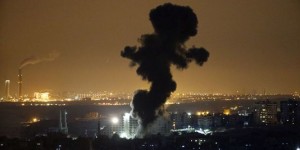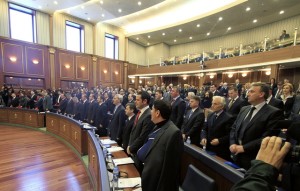Until the 1980s, famine killed ten million people every decade, but by early 2000s mass starvation had all but disappeared. Today, famines are resurgent, driven by war, blockade, hostility to humanitarian principles and a volatile global economy.
Date: Thursday, 22 February 2018.
Time: Book Signing and Sales from 17:30pm; Panelist Discussion Commences 18:00 – 19:30pm.
Location: Leiden University, Spanish Steps, The Hague Campus, Turfmarkt 99, 251 DP The Hague.
Panelists: Alex de Waal, Ambassador Marriët Schuurman, Wayne Jordash QC and Catriona Murdoch.
Signed editions of Mass Starvation will be available for sale.
Alex de Waal, world-renowned expert on humanitarian crisis and response, will discuss Mass Starvation, a book which explores the history of modern famines: their causes, dimensions and why they ended.
Ambassador Marriët Schuurman, Coordinator of the Task Force UN Security Council Membership of the Netherlands Ministry of Foreign Affairs (‘MoFA’), will share her view on the links between conflict and food insecurity.
Mass Starvation breaks new ground in examining forced starvation as an instrument of genocide and war.
Wayne Jordash QC will discuss the legal elements of the crime of starvation.
Catriona Murdoch will follow and discuss GRC’s projects on promoting legal accountability for mass starvation, with a focus on the war in Yemen.
GRC lawyers Wayne Jordash QC and Catriona Murdoch will conclude the event by discussing GRC’s experience working for conflict-affected governments, individuals and NGOs around the world to inform various available avenues for countering impunity.
For more information about the event and registration, click here.

![A photograph from September 2016 shows a malnourished boy laying on a bed outside his family's hut in Hodaida, Yemen [Abduljabbar Zeyad/Reuters]](../../wp-content/uploads/2017/10/Famine-Yemen-e1506979134944.jpg)

